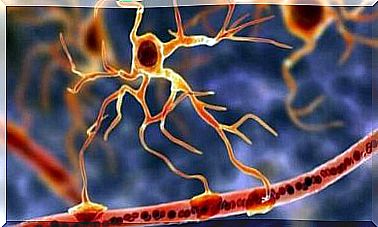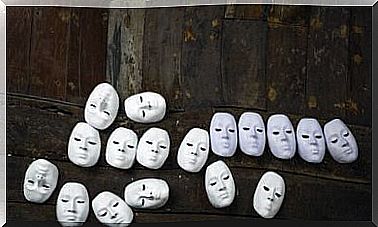Regret In A Relationship: Why Did I Fall In Love With You?

Repentance in a relationship is quite common. Honestly, some individuals prefer to just forget about people they had a bad time with or people they have unpleasant memories with. This is actually quite normal, and it is also quite common for someone to ask themselves “Why did I fall in love with you?” after a breakup or “Why did I not see him / her for who he / she actually was?” or “Why did I give everything to someone who did not deserve it?”
These and other issues can navigate in your mind at some point in your life. They feed discomfort and frustration and bring bad memories to the surface. As they say, “Good relations brings memories of enjoyment, and bad offers important lessons” . However, the latter is not always the case.
All relationships are different and all individuals are different. For that reason, some people still feel a lot of pain after what happened months or even years after it ended. In these cases, it is difficult to focus on finding the lesson when there is so much trauma. Even more so when the person has a negative view of themselves for having had a non-enriching bond for so long.
What can you do in this situation?
Keys to dealing with remorse in a relationship
Repentance in a relationship is a harsh reality that science has studied for years. Studies like this one conducted at the University of Illinois, for example, show that this phenomenon is more common than you think. After a breakup, it is very common for people to reflect on things they should have done or not done, as well as on the things they should not have endured from the beginning.
These are called counterfactual thoughts. In the same way, it is interesting to know that both men and women experience this feeling of remorse for having initiated certain relationships. Undoubtedly, this is a very important fact, which explains why psychology is so interested in studying it.
Repentance and counterfactual thinking have a major impact on emotional well-being, decision-making, behavioral regulation and mental health. Therefore, it is pointless to say to someone, “Do not worry, you always learn from bad relationships” , when no one in reality can take the step to establish certain lessons when what you experienced meant so much suffering.
How can you handle this type of experience? Let’s analyze it.

Be clear about the things you regret
Repentance in a relationship does not just stem from the feeling of frustration over having invested time and emotions in someone who did not deserve your energy. This is something deeper and very complex. For example, some may feel bad about giving up dreams of their ex-partner. Others may feel terrible for not having realized before that their partner lied to them.
Many may even regret that they did not fight hard enough for the relationship, that they neglected their partner or that they made mistakes. There are many things you can regret. Therefore, it is important to clarify what really hurts you and the specific dimensions that cause your suffering.
Learn to process all emotions
Do you really know what remorse “consists of”? There are those who point out that it is a useless psychological reality because it simply blocks the person; they say nothing comes out of it. However, that is not true. First, this emotional construction conceals the weight of grief, which encourages the individual to reflect on what he has experienced and how he feels about it.
It also brings a little rage or anger into the picture, emotions that urge you to react and face what hurts or bothers you. Similarly, remorse in a relationship includes disappointment. This is another important dimension to deal with to understand that disappointment is completely normal. The only thing left to do here is to move on and understand that you deserve better.
Free yourself from guilt: you did not know what would happen
You are not happy with what happened in the relationship. You feel remorseful and even angry because of all the hope you had for your band. Besides, you thought it was magical and then nothing happened. This is understandable, but in this situation, guilt or shame is the last thing you should feed. The truth is, you did not know what was going to happen. Stop being harsh on yourself because you have tried your best.
Falling in love and getting involved in a relationship is something that is done from the heart. Doing what cannot be expressed in words for someone is the norm in every relationship, to love is to fight for it and those you want in your life. Do not regret your efforts; they make you valuable and noble. What happened later was simply not something you could foresee.

Repentance in a relationship is another phase of grief
When you break up, remorse in a relationship is another part of the grief. Ending an emotional bond with someone tends to activate this part of the grieving process that not everyone is talking about. But the last thing you should do is “freeze” your grief at this stage. On the contrary, keep working on moving forward. Sitting still with this pain hinders your process, so try your best to resolve your discomfort. It may take time, but it is possible and must be done.
It is important to accept what happened, free yourself from guilt and be able to trust yourself and the process. By focusing on yourself, you can learn an important lesson from this experience. In that moment, you will see why it has to happen this way. If you have a hard time letting go of this feeling, focus on accepting and overcoming it gradually.









